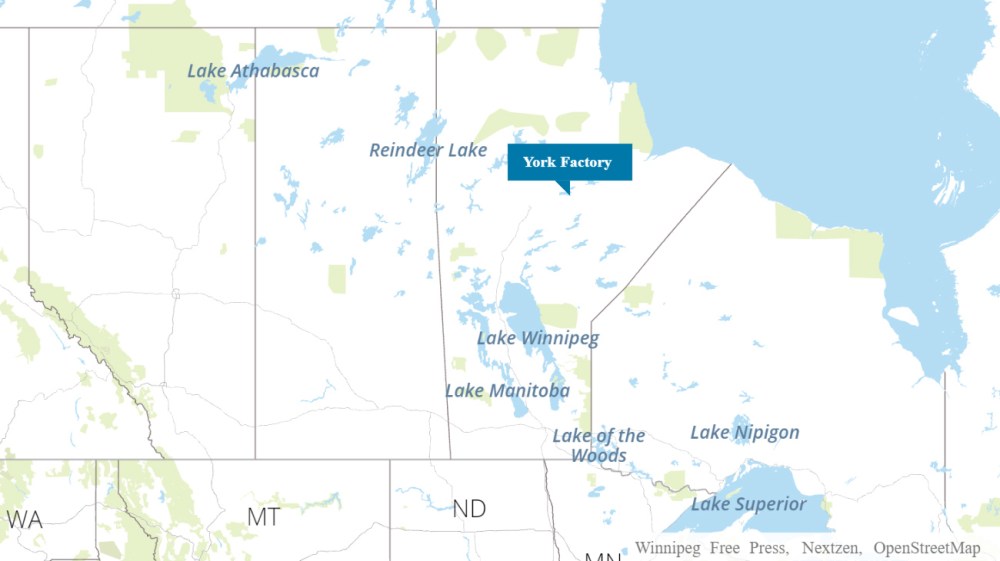Chief of isolated northern Manitoba First Nation sounds mental-health alarm
Advertisement
Read this article for free:
or
Already have an account? Log in here »
To continue reading, please subscribe:
Monthly Digital Subscription
$1 per week for 24 weeks*
- Enjoy unlimited reading on winnipegfreepress.com
- Read the E-Edition, our digital replica newspaper
- Access News Break, our award-winning app
- Play interactive puzzles
*Billed as $4.00 plus GST every four weeks. After 24 weeks, price increases to the regular rate of $19.00 plus GST every four weeks. Offer available to new and qualified returning subscribers only. Cancel any time.
Monthly Digital Subscription
$4.75/week*
- Enjoy unlimited reading on winnipegfreepress.com
- Read the E-Edition, our digital replica newspaper
- Access News Break, our award-winning app
- Play interactive puzzles
*Billed as $19 plus GST every four weeks. Cancel any time.
To continue reading, please subscribe:
Add Free Press access to your Brandon Sun subscription for only an additional
$1 for the first 4 weeks*
*Your next subscription payment will increase by $1.00 and you will be charged $16.99 plus GST for four weeks. After four weeks, your payment will increase to $23.99 plus GST every four weeks.
Read unlimited articles for free today:
or
Already have an account? Log in here »
Hey there, time traveller!
This article was published 19/05/2023 (896 days ago), so information in it may no longer be current.
Recent youth suicides and suicide attempts in a northern Manitoba First Nation have prompted its chief to call for urgent action from federal and provincial governments to address growing isolation in the community.
York Factory First Nation Chief Darryl Wastesicoot is raising the alarm about the mental-health effects of the lack of transportation, infrastructure and resources in the community about 850 kilometres north of Winnipeg.
“Our youth are very much in trouble right now,” Wastesicoot said Friday.

York Factory is approximately 850 kilometres north of Winnipeg.
He said five teenage girls are currently receiving counselling outside the community following their attempts to take their own lives earlier this month.
“We have them outside the community right now, getting help for them. But there are huge issues at every level in our community. We don’t have the infrastructure, we have a lot of overcrowding… we have no land base left to build on,” he said.
Earlier this year, just days apart, the community buried two teenage girls who died by suicide.
“We’re so afraid that they’re going to succeed in taking their own lives, because two of them did. It’s really heartbreaking to see this happening to us.”
The crisis among youth in the community is what’s prompting the chief to speak out now. Wastesicoot has been chief for about a year, and says previous attempts to ask for help from federal and provincial governments have failed. York Factory has declared states of emergency the past two years over the same concerns, the chief said: the lack of infrastructure, access to help and rampant drug and alcohol abuse.
He said the First Nation is still suffering the harms of forced relocation of its peoples in 1957, when the settlement was moved inland from the coast of Hudson Bay. Hydro development in the area has also affected the community’s well-being, he said.
The community relies on flights and a winter road for access to the rest of the province, but Wastesicoot said flight service is too infrequent, with too few passenger seats, to meet the demand for medical travel. Climate change has shrunk the winter road season from five months to about three, and the ferry that’s supposed to run from June to October needs to be replaced, he said.
“Right now, we’re in isolation mode. Our ferry doesn’t run for another two weeks, and we’ve been really restricted as to being able to get out,” he said.
The result is residents isolated in overcrowded living conditions.
He wants to see a permanent, 26-kilometre road built to connect York Factory to the railway line.
“We’d like Canada, the province of Manitoba, and Manitoba Hydro to come to our aid to get these issues addressed.”
katie.may@freepress.mb.ca

Katie May is a multimedia producer for the Free Press.
Our newsroom depends on a growing audience of readers to power our journalism. If you are not a paid reader, please consider becoming a subscriber.
Our newsroom depends on its audience of readers to power our journalism. Thank you for your support.
History
Updated on Saturday, May 20, 2023 10:54 AM CDT: Updates map


